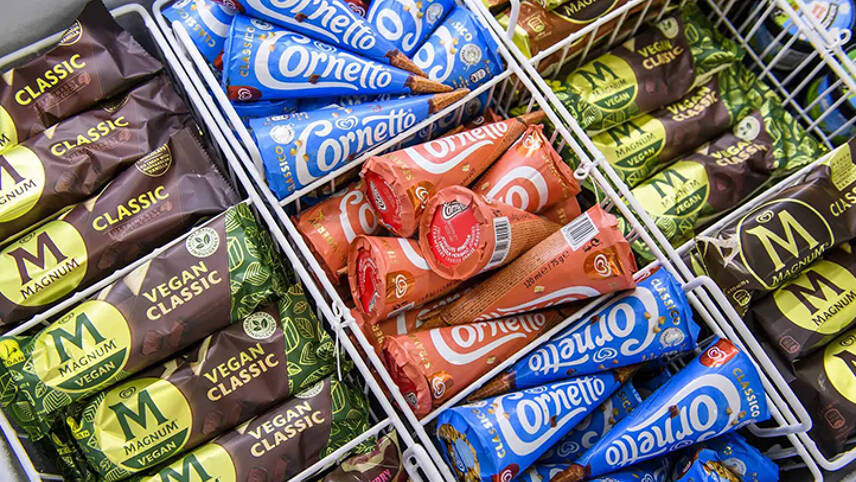Register for free and continue reading
Join our growing army of changemakers and get unlimited access to our premium content

Image: Unilever
Unilever has today (9 November) announced it will grant a free non-exclusive license to the ice cream industry for a variety of patents that have delivered carbon reductions from last-mile ice cream freezer cabinets.
The 12 patents are available for the industry and were used to help keep ice cream products at a warmer freezer temperature of -12C, rather than the current industry standard of -18C.
Last year, Unilever started trialling ways to store ice cream at warmer temperatures in a bid to reduce energy usage and carbon emissions from last-mile ice cream freezer cabinets. The first pilot took place in Germany in Mat, with a second phase launching in Indonesia this year. The pilot sees temperatures in the freezer cabinets increase from -18C to -12C to improve energy efficiency.
Research conducted by Unilever’s Global Ice Cream R&D Centre found that the two pilots in Germany delivered an energy reduction of around 25% per freezer cabinet at the warmer temperature of -12°C.
Unilever’s chief R&D officer for ice cream Andy Sztehlo said: “We’re pleased to take this next step in our work to increase the temperature of our last mile ice cream freezer cabinets. By granting a free non-exclusive license to these 12 reformulation patents, we hope our peers and partners from across the ice cream sector will benefit and work to tackle emissions across the industry.
“We believe through collaboration, we can reduce the cold chain’s impact on the environment, whilst continuing to deliver the great quality ice cream products our consumers love.”
Unilever hopes that sharing the patents with other manufacturers will help accelerate levels of decarbonisation globally.
Emissions from retail ice cream freezers account for 10% of Unilever’s value chain greenhouse gas footprint. Unilever is exploring how cabinet energy consumption can be reduced through switching technical components like compressors, and exploring renewable energy usage.
Having already set science-based targets to eliminate carbon emissions from its operations and to halve the greenhouse gas (GHG) emissions across its products and value chain by 2030, Unilever has now pledged to reach net-zero emissions for products by 2039. Net-zero emissions will account for the sourcing of the materials used, up to the point of sale for products.
Industry partners can contact IceCream.Reformulations@unilever.com to receive further information about obtaining a license.


Please login or Register to leave a comment.